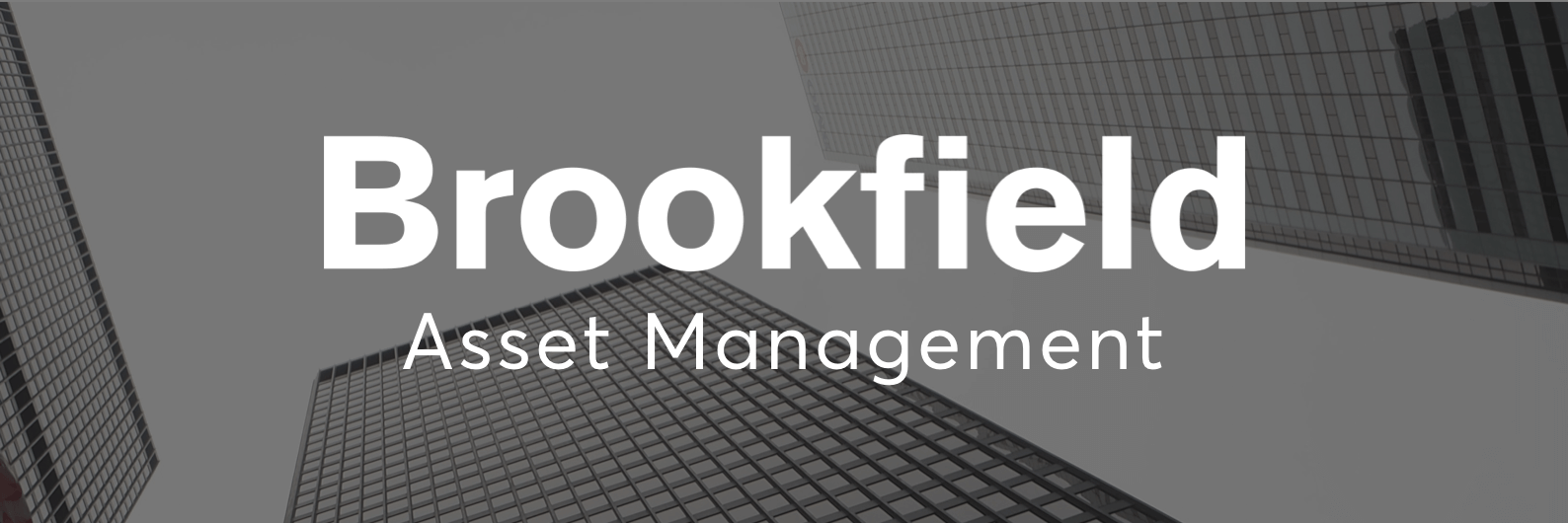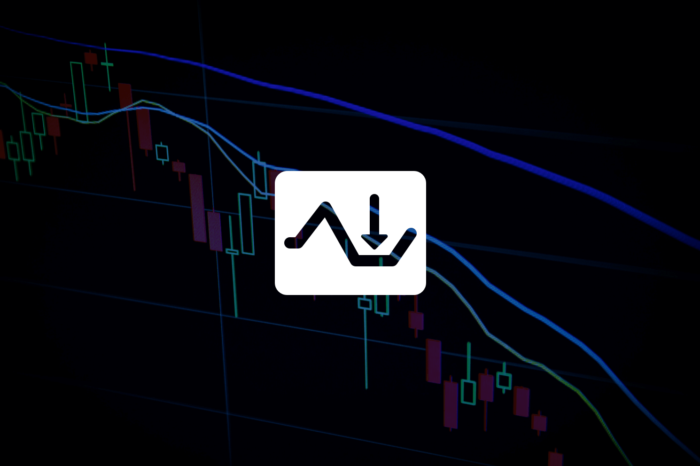Which Brookfield Stock to Buy? BAM vs BN: the Inspiring Quickfire Guide

Every Canadian investor knows Brookfield. But which Brookfield stock should you buy? Recently, Brookfield Asset Management (BAM to Bay Streeters) was renamed Brookfield Corporation (BN on the TSX, also trading in New York under that ticker). However, 25% of Brookfield Corporation’s asset management business was spun off and now trades under BAM in Toronto. Confusing? And then there are the infrastructure and renewable stocks.
Now let’s sort out each stock, compare BN vs BAM, and see how investible each is.
Which Brookfield stock to buy? BAM or BN?
Both Brookfield Asset Management (BAM-T) and Brookfield Corporation (BN-T) are well-regarded companies within the Brookfield family. Brookfield stock refers to the shares of Brookfield Asset Management (BAM) and Brookfield Corporation (BN). However, choosing which one to buy is not obvious.
The choice between the two stocks depends on your investment strategy and objectives. BUt since this is a quickfire guide, let’s go straight to the point. If you’d like a quick answer to which Brookfield stock you should buy, then here it is:
Choosing BAM vs BN boils down to buying BAM for income investors and BN for long-term growth.
BAM for Income Investors
Brookfield Asset Management (BAM) is often heralded as a prime choice for income investors, and for good reason. BAM is a global asset manager with a diversified portfolio spanning across real estate, infrastructure, renewable power, and private equity.
This diversification not only gives it resilience in the face of economic shifts, but also provides multiple avenues for generating steady cash flows. More importantly, BAM has a long-standing history of rewarding its shareholders through consistent dividends. These dividends, driven by the company’s expansive and steadily managed assets, provide a regular income stream for investors, making BAM an attractive option for those seeking consistent returns without excessive risk. The company’s commitment to sustainable investing and value creation further solidifies its position as a reliable pick for income-oriented portfolios.
BN for long-term growth
Brookfield Corporation (BN) presents a compelling opportunity for investors eyeing long-term growth and capital appreciation. As they spun off Brookfield Asset Management (BAM), BN has inherited the robust asset management practices and strategic vision that have been the hallmark of BAM’s success. BN operates in vital sectors with considerable barriers to entry, ensuring a competitive advantage and a durable economic moat.
With the world increasingly focusing on infrastructure development and efficient resource allocation, BN stands poised to capitalize on these trends, offering potential for consistent revenue growth. Moreover, the company’s dedication to exploring new ventures, innovating within its sectors, and expanding its global footprint further amplifies its growth prospects. Investors seeking stock value appreciation over the long run can consider BN as a testament to BAM’s legacy of creating and unlocking value, with a future rife with opportunities for capital gains.
Brookfield Corp vs Brookfield Asset Management (BN vs BAM)

Brookfield Corp. (BN-T)
At the end of 2022, BN was created when it was spun out of BAM.
BN owns 75% of BAM.
In short, BN is an alternative asset manager in real estate, renewable power, infrastructure, venture capital and private equity. BN holds $53+ billion in mostly infrastructure assets (i.e. highway bridges, dams) on prime real estate. It invests and manages such companies in 30 countries, making it diversified in terms of business as well as geography. According to CEO Bruce Flatt, the main purpose of the restructuring was to raise the value of BN from 9x book profit to around 30x.
BN focuses on owning and operating a globally diversified portfolio of high-quality infrastructure assets, such as utilities, transportation, and energy infrastructure. BN is positioned for long-term growth, benefiting from the increasing need for infrastructure development globally. Investors interested in capital appreciation and growth potential may find BN a better fit.
BN in Default
However, BN has defaulted twice early 2023, first on two office towers in Los Angeles to the tune of $784 million, and then $161.4 million on office towers in Washington, D.C. It’s no secret that office real estate has been struggling and spiking interest rates don’t help. Suddenly, investors are approaching BN with caution.
Long term hold for value investors
Still, the street likes BN. This is one to buy and hold long-term if you’re a value investor and can swallow some risk. For those seeking income and more certainty, read on.

Brookfield Asset Management (BAM-N)
BAM is the former holding company.
Brookfield Asset Management (BAM) is a leading global alternative asset manager that specializes in alternative investments. The company currently trades on the TSX and NYSE. BAM specializes in managing a diversified portfolio of real estate, infrastructure, renewable power, and private equity assets. Brookfield Asset Management hasseveral subsidiaries, including Brookfield Infrastructure Partners and BrookfieldRenewable Partners.
These subsidiaries offer investors additional opportunities to invest in specific asset sectors and create long-term growth.
BAM is a diversified global asset management company It generates income through its various operating subsidiaries, including BrookfieldRenewable Energy (BEP) and Brookfield Infrastructure (BIP). BAM offers a solid dividend yield and is suitable for income investors looking for stable cash flows through dividends. BAM provides investors with a range of investment opportunities across various sectors. The company’s strong track record, experienced management team, and global presence make it an attractive option for investors seeking alternative assets.
The current BAM manages alternative assets surpassing $750 billion in renewable power, infrastructure, private equity, real estate and credit. Yes, similar to BN. BAM also earns management fees from various public and private investment products and services on behalf of institutional and retail investors alike.

More Choices, Which Brookfield?
Brookfield Renewable Energy (BEP.UN-T)
Brookfield Renewable Energy (BEP.UN-T) revolutionizes the energy industry and paves the way for a sustainable future. Investing in BEP.UN-T not only provides you with the opportunity to make a positive impact on the environment, but also allows you to reap the benefits of a growing industry.
The renewable energy sector has been experiencing significant growth as the world increases its focus on sustainable solutions. Investing in this sector allows investors to contribute to a cleaner future while potentially earning attractive returns. With a focus on renewable energy sources such as hydro, wind, and solar power, Brookfield Renewable Energy is at the forefront of innovation and progress. By investing in this company, you are helping to reduce carbon emissions, decrease dependence on fossil fuels, and create a cleaner, greener world for future generations.
BEP & Demand for renewable energy
Furthermore, the potential for financial gain is significant, as the demand for renewable energy continues to rise. By supporting BrookfieldRenewable Energy, you are not just investing in a company, but also investing in a brighter, more sustainable future. Join the movement and be a part of the clean energy revolution with BEP.UN-T.
If you are not so much about sustainability and renewable energy, then you might prefer to pick another Brookfield.
Brookfield Renewable offers an attractive dividend yield compared to many other dividend stocks. Additionally, the company’s long-term prospects are promising, given the increasing demand for renewable energy and its commitment to expanding and improving its portfolio.

Brookfield Infrastructure (BIP-N)
Brookfield Infrastructure Partners (BIP-N) is the flagship listed infrastructure company of Brookfield Asset Management, a global alternative asset manager with US$650 billion of assets under management.
BIP.UN is diverse in geography and industry. Think cell towers in India, Enercare in Canada, highways and natural gas plants. Infrastructure, utility and even energy make up its DNA. BIP.UN pays a 4.39% dividend that historically rises 5% each year, and it trades at a 0.89 beta. Fairly stable, though it missed its last two quarters.
BIP’s cash flows
Cash flows are reliable, because 90% are guaranteed by long-term contracts and government rates which are all linked to inflation. Macro tailwinds are driven by government infrastructure spending in many jurisdictions, though the timelines of these could be long. BIP.UN is an income stock that will serve shareholders well.
Should you hold BN or BAM in your portfolio?
A Stockchase reader believes there might be more compelling options to explore before diving into BN or BAM. While BAM’s yield might not be particularly enticing, BN hasn’t shown promising results either. So, considering this, have you thought about alternatives?
Both have been basically dead money since their split. BAM yields 4%, which is not exciting compared with any of a dozen equities that yield twice or even three times as much. Just one example: RTLPO, which yields 9% and can only be called at a cash price 20% higher than its current, technically well supported level. And BN has been a loser without even the benefit of an slightly attractive dividend. I wouldn’t want to own either, given the alternatives.
Stockchase Reader: Riverbum
How does Brookfield stock perform in the Canadian market?
Examining the performance of Brookfield stock on the TSX
Brookfield stock has shown consistent performance on the TSX over the years, with its value steadily increasing. However, it is important to note that past performance does not guarantee future results, and market conditions can significantly impact stock performance.
Comparing Brookfield stock to other Canadian dividend stocks
When comparing Brookfield stock to other Canadian dividend stocks, it is evident that BAM and BIP offer attractive dividend yields. However, investors should carefully evaluate each stock’s performance, risk factors, and growth potential to determine their suitability for their portfolio.
Analyzing the impact of the global economy on Brookfield stock
As a global investment firm, Brookfield stock is not immune to the impact of the global economy. Economic downturns or geopolitical events can affect stock performance. However, Brookfield’s diversified portfolio and long-term investment approach can help mitigate some of these risks.
What makes Brookfield Asset Management a top asset manager?
Brookfield Asset Management’s position as a top asset manager can be attributed to several key factors.
Large assets under management
With over $600 billion in assets under management, Brookfield is one of the largest asset managers globally. This sizable presence gives the company significant access to a wide range of investment opportunities across various asset classes and geographies.
Global investment portfolio
Brookfield’s global investment portfolio spans real estate, renewable energy, private equity, and other alternative assets. This broad diversification enables the company to capitalize on opportunities around the world and mitigate risks associated with any single sector or region.
Expertise in alternative assets
Brookfield has established itself as an expert in managing alternative assets. The company’s deep industry knowledge and experience allow it to identify and execute on attractive investment opportunities, generating value for its clients and investors.
How does investing in Brookfield benefit the Canadian economy?
Brookfield’s infrastructure investments play a vital role in benefiting the Canadian economy in several ways.
Investment in renewable energy
Brookfield’s focus on renewable energy infrastructure helps drive the transition to clean energy sources. By investing in renewable power projects, the company contributes to reducing the carbon footprint and supporting sustainable energy generation in Canada.
Contributing to the development of infrastructure
Brookfield’s investments in infrastructure projects, such as transportation and utilities, help improve the overall infrastructure of Canada. This, in turn, enhances the country’s competitiveness, facilitates economic growth, and improves the quality of life for Canadians.
Creating jobs and economic growth
Infrastructure investments by Brookfield often result in job creation and economic growth. Construction and operation of infrastructure projects require a significant workforce, providing employment opportunities and stimulating economic activity across various sectors.
Investor confidence in the company
Investors have shown confidence in Brookfield, as evidenced by the company’s share price performance and market reputation. The Motley Fool Canada has also highlighted Brookfield as an attractive long-term investment option, further bolstering investor sentiment.
Q: Which Brookfield? BAM or BN?
A: If you’d like a quick answer to which Brookfield stock you should buy, then here it is: Choosing BAM vs BN boils down to buying BAM for income investors and BN for long-term growth.
Q: What is the significance of “bam stock”?
A: “BAM stock” refers to the shares of Brookfield Asset Management. Investing in BAM stock provides investors with an opportunity to participate in the growth and profitability of the company.
Q: What is the significance of “bn stock”?
A: “BN stock” refers to the shares of Brookfield Corporation. Investing in BN stock provides investors with an opportunity to participate in the growth and profitability of the company.
Q: What is Brookfield?
A: Brookfield stock refers to the shares of Brookfield Asset Management (BAM) and Brookfield Corporation (BN). If you’d like a quick answer to which Brookfield stock you should buy, then here it is:
Q: Which Brookfield Stock Should I Invest In?
A: Investing in Brookfield stock can be a great long-term investment strategy. Both BAM and BIP offer attractive dividend yields and have a history of creating long-term growth. However, it is important to consider your own investment goals and do thorough research before making any investment decisions.
Q: How is Brookfield different from other asset managers?
Brookfield stands out from other asset managers due to its diversified portfolio and global presence. They have expertise in various sectors like infrastructure, renewable power, and real estate. They also manage alternative assets, offering investors unique investment opportunities.
Q: Is Brookfield a Canadian company?
Yes, Brookfield is a Canadian company. It is listed on the TSX (Toronto Stock Exchange) and is considered one of the leading companies in the Canadian market.
Q: Does Brookfield have any other renewable energy stocks?
Yes, Brookfield has a subsidiary called Brookfield Renewable Partners that focuses exclusively on renewable energy generation. It is another investment option for individuals interested in the renewable energy sector.









